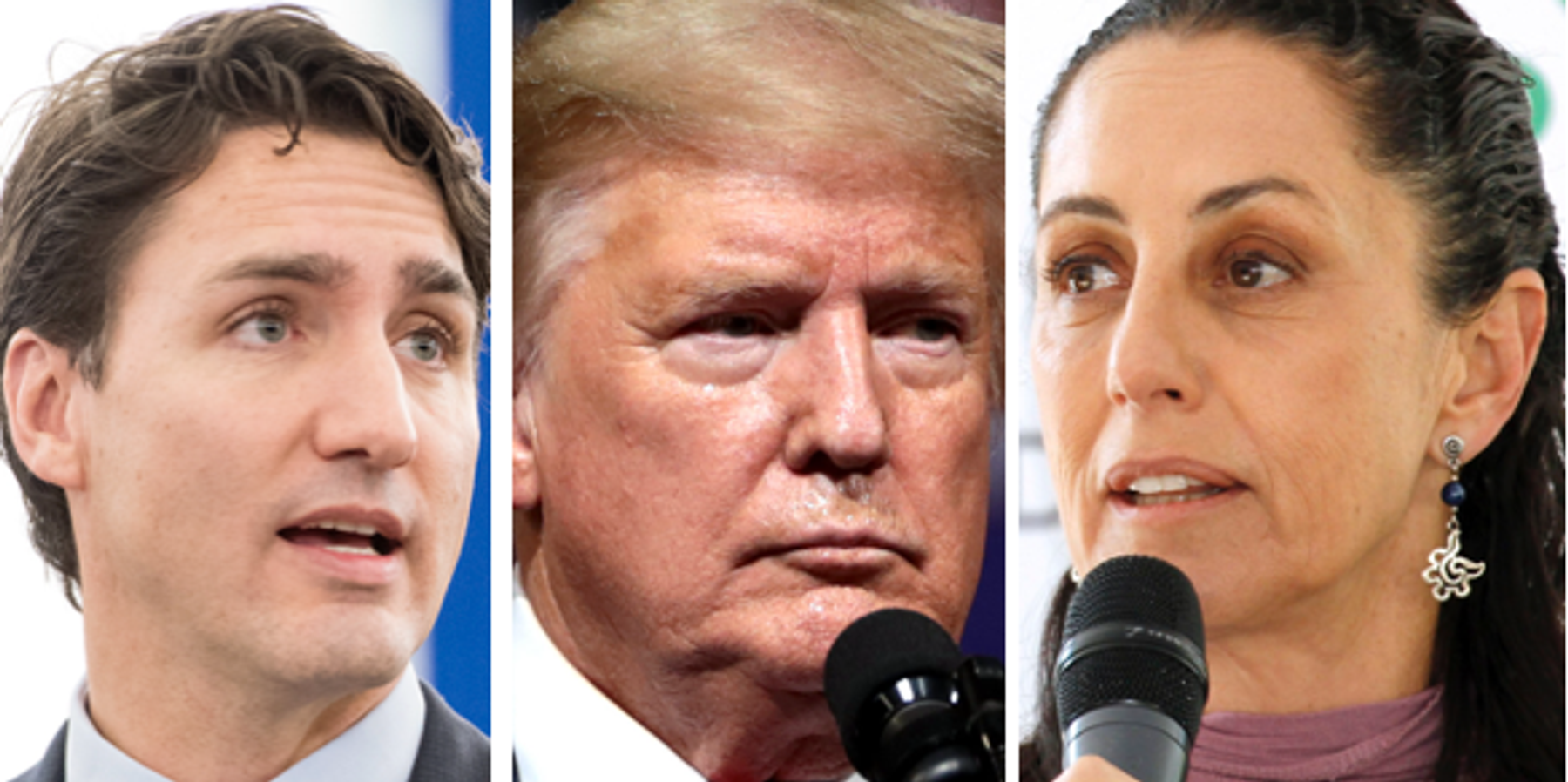In a whiplash series of moves, President Donald Trump imposed swinging tariffs on Mexico, Canada, and China over the weekend, before announcing they were delayed, at least the ones on Mexico, on Monday morning.
President Claudia Sheinbaum of Mexico also announced the news this morning after a conversation with her American counterpart, explaining that rather than taking effect after midnight, the tariffs on Mexico would be delayed by a month.
The key move on the Mexican side appears to have been an agreement to move 10,000 additional Mexican troops to the border. “These soldiers will be specifically designated to stop the flow of fentanyl, and illegal migrants into our Country,” Trump said in his Truth Social post.
Meanwhile, Trump is due to speak with Canadian Prime Minister Justin Trudeau later today, and China is reportedly preparing its own response to try to head off the tariffs. The whirlwind highlights the persistent uncertainty that governments and businesses will likely continue to face on the subject of tariffs. (Update: later in the afternoon, the 25% tariffs on Canada were also delayed for a 30-day period.)
On Saturday evening, President Trump had followed through on threats of major tariffs by invoking a national emergency resulting from the “extraordinary threat posed by illegal aliens and drugs, including deadly fentanyl.” The stated rationale behind the tariffs was largely based on non-trade issues such as migration and narcotics, and is consistent with his pattern of threatening reduced access to the U.S. market as a means to achieve other goals. He acknowledged that the measures might cause some pain, but insisted they would be "worth the price that must be paid."
The declaration imposed 25% tariffs on all imports from Canada and from Mexico, carving out a partial exemption of a 10% tariff on imports of crude oil from Canada. In addition, he also imposed additional tariffs of 10% on all imports from China. The tariffs take effect on Tuesday.
Prime Minister Justin Trudeau responded with details of Canada’s retaliatory tariffs.
A longer treatment in the full executive order on the “Northern Border” laid out the criteria for the tariffs to be removed in at least that instance (there is only one full executive order on Canada on the White House website, with the other countries just named in a subsequent fact sheet). The tariff decision could be rescinded if “the Secretary of Homeland Security …. indicate[s] that the Government of Canada has taken adequate steps to alleviate this public health crisis through cooperative enforcement actions.”
The tariffs on Mexico and Canada would affect the U.S.’s two most important trading partners, which together accounted for about 30% of all U.S. trade (1.475 trillion dollars of US exports and imports) for the first 11 months of 2024. They are also being imposed within a free-trade area that dates back more than three decades to NAFTA. That treaty was succeeded in July 2020 by a new version (USMCA) after the original was renegotiated during Trump’s first term.
As the President noted in his fact sheet, with trade accounting for only 24% of American GDP, the U.S. is a relatively closed economy compared to both Canada (67% of GDP) and Mexico (73% of GDP), implying his confidence that the tariffs would force concessions from both countries. At the same time, 30 years of integration have led to many industries becoming deeply intertwined, most prominently through a continental automobile sector with supply chains that span borders. This could mean that the negative effects of an extended battle on tariffs are not confined solely to the smaller economies to the north and south of the U.S.
Some estimates suggest that auto-parts in a single automobile can cross the border eight times, leading to the possibility of customs-related supply-chain interruptions and price increases that could add up to $3,000 dollars to the price of a new car. Similarly, the National Association of Homebuilders said that the moves could raise housing prices and lower supply because “more than 70% of the imports of two essential materials …softwood lumber and gypsum (used for drywall) come from Canada and Mexico, respectively.” The American Farm Bureau expressed its concerns about retaliatory tariffs and fertilizer price increases, as 80% of US potash imports come from Canada.
The measures follow through on Trump’s campaign promises, which he reiterated within hours of his inauguration. Between the intensity of his focus on immigration, drugs, and tariffs (which he has called the most beautiful word), the potential for at least some economic damage to the U.S., and the imprecise criteria for escalation or deescalation, it remains to be seen where or when these repeated games of chicken will end.
Meanwhile, the intersection of economics and expanded definitions of national security also leaves open the possibility that a failure of economic tools to address concerns over immigration and narcotics leads in the direction of military interventionism in Mexico.
- Justin Trudeau is in no shape to face Trump ›
- Trump loves tariffs but expect a more complicated trade policy ›
- Mexico tried, but it's still getting the tariff boom | Responsible Statecraft ›
- Trump should take the victory in Canada and move on | Responsible Statecraft ›
- The hidden costs of Trump's 'madman' approach to tariffs | Responsible Statecraft ›
- Taxing remittances helps make US neighbors poorer, less stable | Responsible Statecraft ›
- Trade review process could rock the calm in US-Mexico relations | Responsible Statecraft ›
















